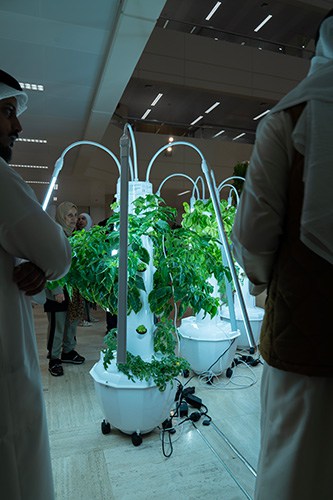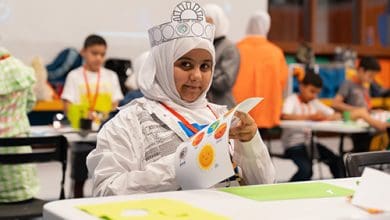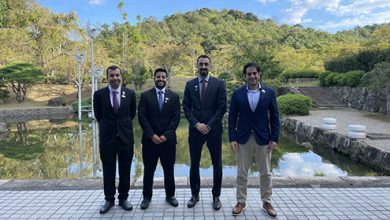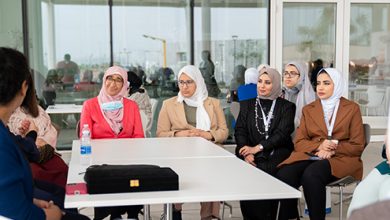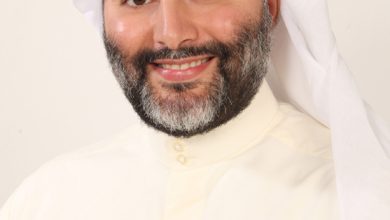Kuwait’s First-Ever Ghabgathon
When professors at KCST introduced ghabga traditions to a hackathon-style competition last Ramadan, the event was a huge success
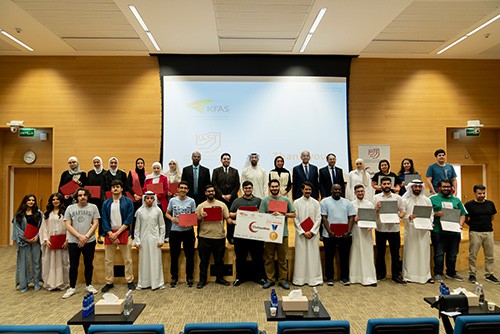
 Each Ramadan in Kuwait, ghabgas bring together colleagues, friends, and families to share gratitude, joy, and plenty of food and sweets. This year, professors at the Kuwait College of Science and Technology (KCST) had a novel idea — why not add learning tech skills to the list of ghabga activities? The result was “Ghabgathon,” a mashup of the words “ghabga” and “hackathon.”
Each Ramadan in Kuwait, ghabgas bring together colleagues, friends, and families to share gratitude, joy, and plenty of food and sweets. This year, professors at the Kuwait College of Science and Technology (KCST) had a novel idea — why not add learning tech skills to the list of ghabga activities? The result was “Ghabgathon,” a mashup of the words “ghabga” and “hackathon.”One of the major environmental challenges facing Kuwait and the region is food security, water scarcity, and sustainable land availability. An example of a local initiative that is taking on these challenges is Beyond Organic, a project that focuses on supplying innovative agricultural technologies to the Kuwaiti market.
As part of the Emergency Resilience Program, the Kuwait Foundation for the Advancement of Sciences (KFAS) launched a special call for practical solutions that addressed the implications of the pandemic on national food security and supply chain disruption. Beyond Organic was one of the companies that stood out in terms of commitment, dedication, and ambitious vision.
Through dedicated testing and experimentation, it successfully validated the viability of aeroponics within Kuwait’s challenging conditions and managed to cultivate nutrient-rich crops while minimizing water consumption and decreasing reliance on chemical pesticides.
Aeroponic farming is a soilless method of farming, where the roots of the plants are hanging in the air 24/7. The nutrients come from a specially formulated 100 percent natural mineral solution called “TowerTonic”, used for all types of plants. With this technology, crops can grow larger in size, more aromatic, and fresher tasting with zero pesticides and chemicals.
Beyond Organic addresses the modern-day challenges of traditional farming by utilizing a fraction of the water required by conventional farming. This efficient water usage significantly contributes to sustainable water management in Kuwait, where water scarcity is a critical concern.
“The Beyond Organic Vertical Farm project was an exemplary practical solution to showcase the benefits of combining protected agricultural with modern technologies,” said Husain Al Helal, Program Officer in the Research Directorate at KFAS. “Our partnership is part of KFAS’ vision for a sustainable future for Kuwait to catalyze the change needed in the country to foster its future development and long-term sustainability.”
Beyond Organic collaborated with experts to better the understanding of the technology and applications within the unique context of Kuwait’s environment and agriculture. A significant milestone was marked by the establishment of a pilot tower farm greenhouse comprising 135 showcase tower systems in Al-Wafra.
The technology of aeroponic farming is a new concept, especially in Kuwait and the Middle East region. As part of its efforts for a sustainable future, Beyond Organic prioritizes community engagement and awareness, by initiating educational programs about the benefits of the technology for the environment and future of Kuwait. The main aim is to empower the next generation with the knowledge and enthusiasm needed to embrace sustainable farming practices.
In addition, aeroponic farming enables the production of crops all year around with no downtime, and this is thanks to the automated climate-controlled environment that aeroponics use.
Ghadeer Al- Aradi

